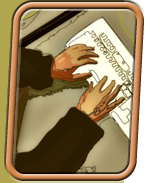|
|
||||||
|
|
|
|
||||
|
|
|
|
|
|
||
|
|
||||||
|
|
|
|
||||
|
|
|
|
||||
|
|
|
 |
|
|
|
|
|
|
|
|
|
|
|
|
|
|
|
|
|
|
|
|
|
|
|
|
|
Flight Crews' Defense Training Worth the Cost The Baltimore Sun Flying back to Washington from California not long ago, a pilot's reassuring baritone informed me and my fellow passengers that the flight attendants aboard were along "primarily for [our] safety." Standard procedures soon commenced: Exits were marked, use of oxygen masks was demonstrated, the doors were secured and off we went, safe and sound. But we could have been safer. Not from the dangers of cabin pressure gone awry or from an emergency landing, but from the threat of terrorists. And here, flight attendants are -- or could be -- in a unique position to help. Under a proposal the Senate will take up next month, flight attendants would receive increased self-defense training, including verbal and physical techniques all the way up to "deadly force." That would be a big improvement over the Federal Aviation Administration's "evasion and avoidance" guidelines and some airlines' current programs: American Airlines offers a voluntary self-defense class, for example, and Southwest has a two-hour course. Those standards don't fly with the Association of Flight Attendants or with Sen. Bob Smith, the New Hampshire Republican who is the chief sponsor of the bill. Let me be clear: I agree with the flight attendants and with Senator Smith. But there are two potential obstacles to safer skies. One is guns. The other is money. The so-called "cabin security" measure is tied to the controversial proposal to allow airline pilots to carry firearms. The House passed its version of the legislation in July. James M. Loy, the Transportation Security Administration chief, has said he is "hesitant" about arming pilots, but ordered tests on the idea nonetheless. Senate approval is not assured, but is starting to appear more likely. The bill's chief opponent, Democratic Sen. Ernest Hollings of South Carolina, said he would not block a subcommittee vote on the matter. In any case, no gun law, no self-defense training. Then there is -- surprise -- the matter of money. Even if the airlines are uncomfortable with the de facto deputization of their crew members, they'll probably still have to pay for self-defense training if the Smith bill passes. Given the nose-diving fortunes of the industry, "there might be some resistance," said Ray Neidl, an aviation analyst with Blaylock & Partners. Cost is said to be a factor in the airlines' reluctance to support the arming of pilots, so it's not exactly a wild leap to imagine they'd pooh-pooh mandatory self-defense classes. No airline I spoke with would offer a position on the bill. But the Air Transport Association, the industry's trade group, said it could add a "very significant" cost to doing business. One can hear the howls of "unfunded mandate." But they protest too much. You can't have a too-well-trained crew member. More money for security (of the flight attendants, pilots and passengers) is more money worth spending. Besides, as the saying goes, you can't put a price on human life -- even in dire financial times. Post-Sept. 11 water-cooler talk notwithstanding, some terrorists may be targeting airlines again. It's not inconceivable that someone would be bold enough to hijack another airliner. The brave passengers of United Airlines Flight 93 and their incredibly gutsy "let's roll" example may have made some aspiring hijackers think twice. But counting on that would be dangerous. And relying on plucky passengers to thwart evildoers isn't enough. The airlines should, in fact, provide more self-defense training even if Congress doesn't require it. It would be a bit steel-souled not to consider regular, aggressive training for flight attendants -- who could rightfully be considered a first line of defense -- an essential security measure. Of course, airlines probably would pass training costs along to the consumers. I, for one, wouldn't mind. But that's not the only way to go, by any means. How about using existing service training budgets (currently reserved for napkin-folding and wine name-pronunciation instruction)? How much would revoking free first- or business- class liquor save? If the airlines won't pump up security training, maybe Congress or the White House will find another way short of the Smith bill. Painting money for instruction in judo holds into the work-in-progress of homeland security spending proposals is an idea even the most tight-fisted budgeter shouldn't ignore. Making cabin defense part of the flight attendant's job (which is what the bill would do, willy-nilly) might even have the effect of upping air travel: a safe passenger is a happy passenger, and more likely to spend money on tickets. Especially if the attendants' charge includes a kind of Hippocratic oath-in-reverse: first, do harm. That way, "let's roll" means a lot more than the beverage cart.
|